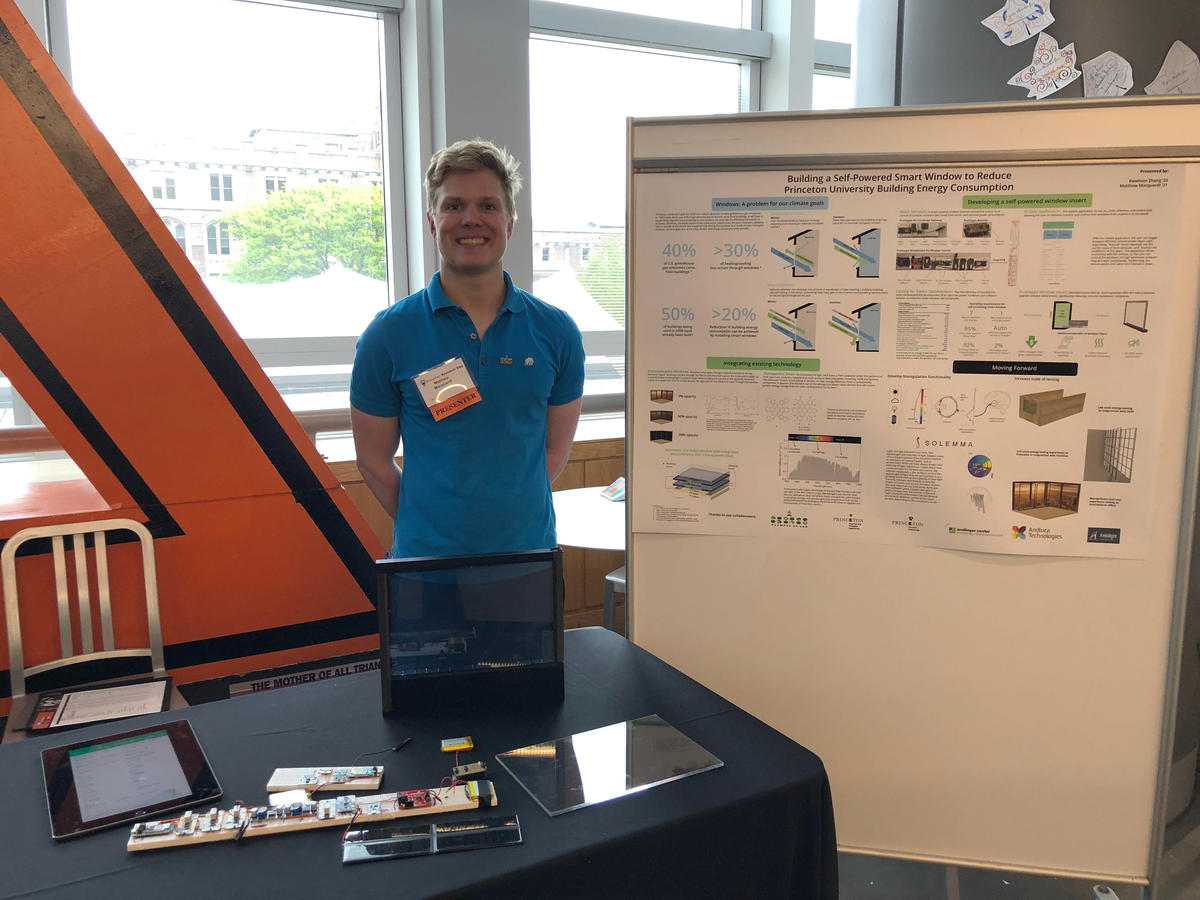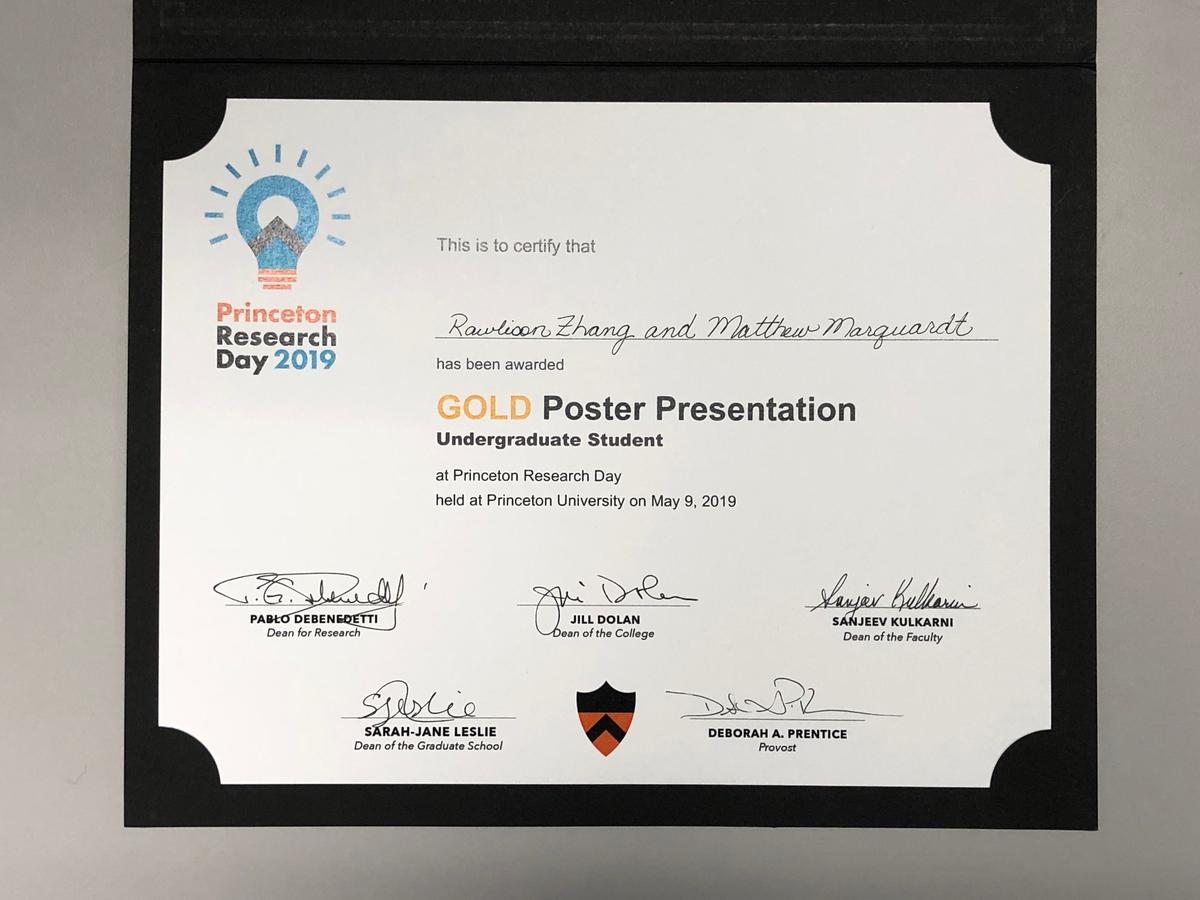Developing a “Smart Window”
Smart Windows: Light-Responsive Films Capability as Smart Windows on Princeton University Building Energy Consumption
Princeton University’s goal for 2020 is to reduce absolute campus greenhouse gas emissions to 1990 levels. In the US, over 40% of greenhouse gas emissions come from buildings. If Princeton wants to hit its target, it will have to reduce the energy consumption of its buildings. An area ripe for efficiency innovation is windows. Windows, especially some of the university’s oldest ones, are poor insulators. In the winter, single pane and drafty windows let precious heat escape from the building. In the summer, sunlight radiates through the window and heats the room, trapping heat in the building. Smart glass technology looks to transform how we experience the outdoors from inside our buildings and has the potential for considerable energy savings. Smart glass can be tinted darker or lighter on command from a device such as a user’s smartphone, enabling user control of natural lighting, which has the potential to reduce the energy consumption of climate control systems, improve lighting conditions, and increase user comfort.
We prototyped a solar-powered smart window. This prototype combined existing smart glass products with transparent solar panels developed by Lynn Loo’s Organic and Polymer Electronics Lab from the Chemical and Biological Engineering Department and Andlinger Center for Energy and Environment. We developed the hardware and software necessary for automatic closed-loop control of the window that reacts to varying environmental conditions. Our goal was to develop a self-sustaining smart window that would be able to dynamically adapt to the lighting and comfort demands of the occupant by using a wide array of environmental sensors and to begin to quantify the energy consumption relative to typical windows on campus.
Matthew Marquardt ’21 and co-leader, Rawlison Zhang ’20 received the Gold Award for their research poster presentation at the University’s Princeton Research Day 2019.
Faculty Advisor: Professor Lynn Loo, Department of Chemical and Biological Engineering
